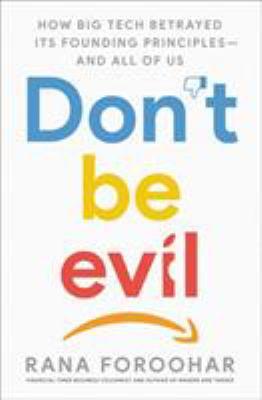
Don't be evil : how big tech betrayed its founding principles -- and all of us
A penetrating indictment of how today's largest tech companies are hijacking our data, our livelihoods, our social fabric, and our minds-from an acclaimed Financial Times columnist and CNN analyst. Rana Foroohar tells the story of how Big Tech lost its soul-and ate our lunch. Through her skilled reporting and unparalleled access-won through nearly thirty years covering business and technology-she shows the true extent to which behemoths like Google, Facebook, Apple, and Amazon are monetizing both our data and our attention, without us seeing a penny of those exorbitant profits. Finally, Foroohar lays out a plan for how we can resist, by creating a framework that fosters innovation while also protecting us from the dark side of digital technology
Browse Related Items
- ISBN: 9781984823984
-
Physical Description
print
337 pages ; 24 cm - Edition First edition.
- Publisher [Place of publication not identified] : [publisher not identified], 2019.
Content descriptions
| Bibliography, etc. Note: | Includes bibliographical references and index. |
Additional Information



